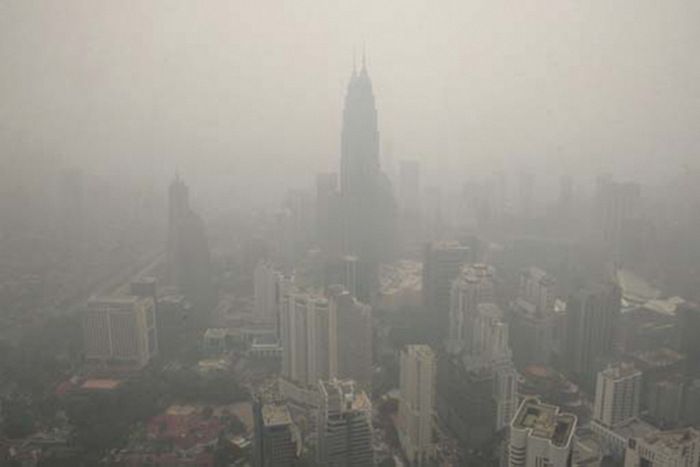Connexion: Haze blankets Asean moral values


By Joachim Ng
Your neighbour can make you fall perilously sick, disrupt your studies, or force you to wait stressfully at Sultan Azlan Shah Airport as you check the smoke (API) reading to see if your flight may be cancelled. As usual the neighbour isn’t concerned with your loss of health or loss of earnings. It’s his patch of forest to burn as he wishes.
Asians, despite their much-proclaimed superior religio-cultural traditions, lack the habit of good neighbourliness. Asean is nowhere near the cohesive level of the European Union with its strong focus on regional integration. Not only do Asean states display unconcern for neighbours, citizens of many nations frequently show disdain towards fellow citizens outside their own factional groups.
Worst is the profit rule that your only neighbour is the dollar. Happy to comply with this rule, many planters are quietly playing a supporting role in haze creation. Open burning in Malaysia itself has long been practised by farmers and contractors as a free and easy way to get rid of trees, shrubs, and debris. Signs of this habit are visibly evident in the miles of garbage dotting the semi-urban landscape.
Why is it that despite their strong cultural and religious heritage, the people of Asean fail each other when they most need each other? Why is the sense of neighbourliness missing? Asean’s religio-cultural traditions are like twin strands of your DNA; a factional strand is wound together with a universal strand. The golden rule “to love your neighbour” that is embedded in all Asean traditions can be interpreted factionally or universally.
Factionally, you count as “neighbour” only your fellow believers, fellow racialists, fellow planters, or very broadly your fellow countrymen. The rest are strangers. But if you have a universalist mind, your neighbour is any human being who co-exists peacefully with you. There are no people borders in universalism.
The problem in Asean is that we lean more towards factionalism and less towards universalism. But the less we integrate on the basis of shared values, the more we segregate. The haze coincided with a new segregationist movement on social media urging one faith community to buy products manufactured by the community and to avoid products made outside the community.
Segregation — the creating of silos to wall up different groups on the basis of factional interests — undermines the struggle to achieve a higher shared identity. Without integration, even basic values such as honesty disintegrate. Etched into the records is our neighbour’s denial that the haze greying our skies comes from its territory.


